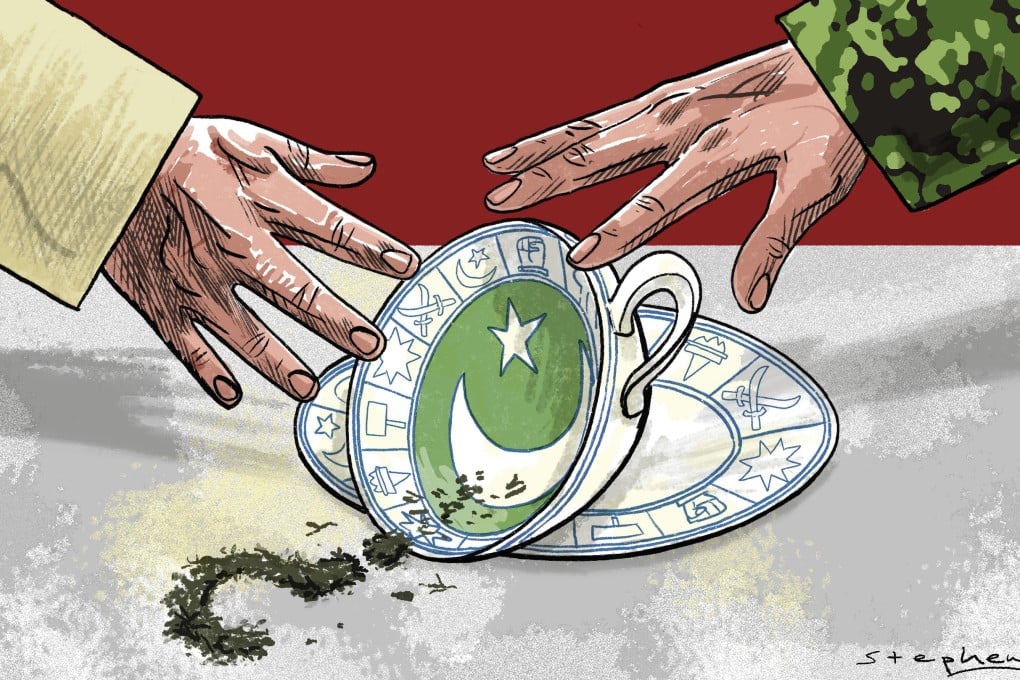Advertisement
Opinion | What protests in Pakistan against Imran Khan’s arrest mean for China
- Public anger at the previously sacrosanct institution of the army, which Beijing has close links with, could risk Chinese interests in Pakistan, including the belt and road ‘economic corridor’
Reading Time:3 minutes
Why you can trust SCMP
4

Pakistan’s former prime minister Imran Khan may have been released on bail but the country remains in a tumultuous spiral after his heavy-handed arrest at the Islamabad High Court last week by the paramilitary Rangers.
Advertisement
The ugly arrest and its sheer impunity – carried out by soldiers rather than the police – sparked nationwide, anti-army protests by Khan’s supporters. This assault on the army is unprecedented in Pakistan. With at least nine reported dead and thousands arrested, the situation remains tense.
In recent days, the stand-off between Khan – who is seen as having the support of the chief justice – and the army chief, General Asim Munir, has revealed the country’s many layers of institutional discord. This political turbulence has grave implications for Pakistan and its neighbours, primarily China.
At the heart of the turmoil is an old issue of governance – the nature of civil-military relations in a country where democracy remains fragile and distorted.
It was barely a decade after Pakistan’s formation in August 1947 that the army decided to seize power. Since this first coup, by General Ayub Khan in 1958, three more army chiefs have been in power – ostensibly to stabilise the nation – the last one being General Pervez Musharraf, who ousted prime minister Nawaz Sharif in October 1999.
Advertisement
Over the decades, the global community has frowned upon this violation of the democratic norm by the all-powerful Pakistani army. Yet China made the strategic decision to draw closer to the Pakistani military. This determination was arrived at during the Mao years in the mid-1960s and the catalyst was Beijing’s anxiety about and animus towards India – sentiments shared in even greater measure by Pakistan.

Advertisement
